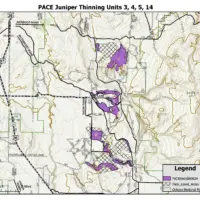
Salem, Ore. – It’s a big decision by the Oregon Supreme Court today. The high court ruled that a snowboarder who was paralyzed while using a snow jump at Mt. Bachelor can move forward with a lawsuit. 18-year-old Myles Bagley of Bend was paralyzed from the waist down at Mt. Bachelor in 2006 and the court ruled that the liability waiver on the back of the ticket didn’t translate to the loss of his rights to sue. He is now 27, and is suing for 21.5 million dollars.
In a pretrial hearing in 2010, a Deschutes County Circuit Court judge agreed with the ski resort and threw out the lawsuit before it could be heard by a jury. In 2013, the Oregon Court of Appeals upheld the Deschutes County judge’s decision.
Today’s decision could have an impact on ski resorts throughout the region and elsewhere, and in other sports. The Oregonian reports that it could affect a broad range of recreational businesses — including ice skating rinks, rock climbing gyms and parachuting companies — that have stood steadfast behind negligence liability waivers to protect themselves from paying out millions for people who get hurt or die.
The high court’s ruling came in the case of — a Bend teenager who became permanently paralyzed when he broke his spine on Feb. 16, 2006, after he launched off a jump at Mt. Bachelor terrain park.
His season pass stated that by using it at the ski resort, he agreed not to sue the resort for injury or death “even if caused by negligence,” but Bagley’s attorneys argued that such a release was contrary to public policy.
The attorneys contended that the resort created a dangerous condition at the terrain park by the way it set up the jump and that Bagley’s $21.5 million lawsuit should be allowed to go forward.
But the resort’s attorneys contended that skiers and snowboarders are taking part in a voluntary — and potentially dangerous — activity. They also said skiers and snowboarders agree to an unambiguous liability release printed on the back of season passes and lift tickets and posted on signs at the bottom of every lift.
But Thursday, in ruling in favor of Bagley to go forward with his lawsuit, the Supreme Court said not all of the responsibility of safety should fall on skiers, snowboarders and members of the public who engage in inherently risky activities. The high court said business owners should also bear some of that responsibility.
The Supreme Court used the example of a chairlift, explaining that a ski resort is in a much better position to ensure that it’s safe to operate than the members of the public who are riding it. The court said that the same holds true for the “artificial constructs” like the Bachelor built jump Bagley used before injuring himself.
If you see local news happen, call the Horizon Broadcasting Group News Tip Hotline at 541-323-NEWS, or email us.















